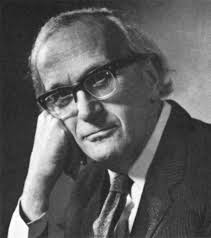Austin: Innovator of Ordinary Language Philosophy – Unveiling His Secrets, Achievements, and Influence
イントロダクション
オースティンは、日常言語学派の先駆者として広く認識されています。
彼の洞察に富んだ研究は、言語の使用を通じて真実や行為を解釈する新たな視点を提供しました。
彼の理論は、哲学はもちろんのこと、言語学、心理学、法律学など多岐にわたる分野に影響を及ぼし続けています。
この記事では、オースティンの貢献とその知られざる側面に光を当て、彼が今日に残す影響力の大きさを探ります。
Introduction
J.L. Austin is widely recognized as a pioneer of the Ordinary Language Philosophy.
His insightful studies offered new perspectives on interpreting truth and actions through the use of language.
His theories have influenced not only philosophy but also diverse fields including linguistics, psychology, and jurisprudence.
This article explores Austin’s contributions, sheds light on lesser-known aspects of his work, and examines the profound impact he continues to have today.
ジョン・L・オースティンの生涯
ジョン・L・オースティンは、言語哲学の分野において画期的な貢献をした哲学者です。
彼は1911年に生まれ、オックスフォード大学で学び、後にそこで教鞭を取りました。
オースティンの研究は、日常言語学派の主要人物の一人として認識されており、彼の考え方は現代哲学においても重要な影響を与えています。
オースティンの生い立ちと教育は、彼の知的追求の基盤を形成しました。
彼は幼少期から言葉に対する深い興味を持ち、オックスフォード大学での学びを通じてその興味をさらに探求しました。
大学時代から、オースティンは言語の使い方に興味を持ち、言語が持つ力とその使用に関する理論を展開し始めました。
学問への道を歩み始めたオースティンは、オックスフォードでの研究を経て、言語哲学の領域でのキャリアを築き上げました。
彼の著作や講義は、言語が現実世界においてどのように機能するかという観点から、言語の本質を探求しました。
オースティンは言語行為理論を提唱し、言葉が単なるコミュニケーションの手段でなく、実際に行動を引き起こすものであるという考えを提示しました。
ジョン・L・オースティンの生涯は、言語哲学の理解を深めるための不朽の貢献を遺しました。
彼の思想は、言葉が私たちの日常生活にどのように組み込まれているか、そしてそれがどのようにして私たちの行動や考えに影響を与えるかを考える上で、今なお多くの研究者によって参照されています。
オースティンの理論は、哲学だけでなく言語学、心理学、法学など多岐にわたる分野においても議論されているのです。
John L. Austin’s Life
John L. Austin was a pioneering philosopher who made groundbreaking contributions to the field of philosophy of language.
Born in 1911, he studied at Oxford University and later became a prominent faculty member there.
Recognized as a key figure in the Ordinary Language Philosophy movement, Austin’s ideas continue to wield significant influence in contemporary philosophy.
Austin’s upbringing and education laid the foundation for his intellectual pursuits.
From a young age, he had a deep interest in language, which he further explored during his tenure at Oxford University.
During his university years, Austin became fascinated with how language is used and began developing theories about its power and usage.
Embarking on an academic career, Austin built his career in the field of philosophy of language through his research at Oxford.
His writings and lectures delved into the essence of language from the perspective of how it functions in the real world.
Austin advocated for the theory of speech acts, proposing that language not only serves as a means of communication but also prompts actual behaviors.
John L. Austin’s life left an enduring legacy of advancing our understanding of philosophy of language.
His ideas continue to be referenced by many scholars who explore how language is integrated into our daily lives and influences our actions and thoughts.
Austin’s theories are debated not only in philosophy but also across diverse fields such as linguistics, psychology, and jurisprudence.

オースティンの生い立ちと教育
ジョン・L・オースティンは、言語哲学の分野で重要な役割を果たした学者であり、日常言語学派の主要人物の一人として知られています。
彼の生い立ちはオックスフォード大学と深い関わりを持ち、そこで彼は学問の世界に足を踏み入れました。
オースティンはルートヴィヒ・ウィトゲンシュタインの影響を受けつつ、独自の理論を展開し、「発話行為」という概念を提唱しました。
オースティンの研究は、言語が持つ力とその使用における微妙なニュアンスを理解するための基礎を築きました。
Austin’s Background and Education
John L. Austin, a scholar who played a significant role in the field of philosophy of language and is known as one of the key figures in Ordinary Language Philosophy.
His upbringing was closely intertwined with Oxford University, where he first stepped into the world of academia.
Influenced by Ludwig Wittgenstein, Austin developed his own theories, notably advocating the concept of “speech acts.”
Austin’s studies laid the foundation for understanding the power of language and the subtle nuances in its usage.

学問への道とキャリアの築き方
ジョン・L・オースティンは、オックスフォード大学ベリオール・カレッジで学び、その後、言語哲学の分野で重要な貢献をしました。
彼は哲学者としてのキャリアを築く中で、日常言語学派の主要人物の一人として名を馳せ、発話行為の理論を提唱しました。
オースティンのアプローチは、言葉が持つ力と、それが社会的コンテキストでどのように機能するかを理解する上で革新的でした。
彼の研究は、学問の道を志す者たちにとって、言語の使用と分析における新たな地平を開いたのです。
Forging a Path in Academia and Career
John L. Austin studied at Balliol College, Oxford University, where he later made significant contributions in the field of philosophy of language.
Building his career as a philosopher, Austin gained prominence as a key figure in Ordinary Language Philosophy, advocating the theory of speech acts.
Austin’s approach was innovative in understanding the power of language and how it functions within social contexts.
His research opened new horizons in the analysis and usage of language, inspiring those embarking on scholarly pursuits.
日常言語学派とオースティンの貢献
日常言語学派は、20世紀中頃にイギリスで勃興した言語哲学の一派であり、その中心的な人物の一人がジョン・L・オースティンでした。
この学派は、哲学問題を解析する際に日常言語を重視するという基本理念を持っており、論理実証主義の抽象的かつ数学的なアプローチに対する反動として現れました。
オースティンは、言語哲学における重要な概念である「発話行為」の理論を提唱し、言葉が単に事実を記述するだけでなく、言葉を発すること自体が行為であるという見方を強調しました。
彼の著書「言語行為」では、発話が持つ力と行為としての性質を詳細に分析し、発話行為を「発語行為」、「命題行為」、「イリューショナリー行為」という三つの部分に分けて考察しました。
オースティンの業績は、日常言語学派の中でも特に影響力があり、後の言語哲学やコミュニケーション理論に大きな影響を与えています。
彼の考え方は、言語が持つ力を理解し、より深いコミュニケーションの理解へと導くための土台を築き上げました。
日常言語学派の基本理念
日常言語学派は、20世紀中頃に言語哲学の分野で発展した思想の流れであり、ルートヴィヒ・ウィトゲンシュタインの後期哲学の影響を受けています。
この学派の研究者たちは、哲学的な問題が日常言語の誤解や誤用から生じると考え、言語の普遍的な構造を解明することよりも、言語が実際のコミュニケーションの中でどのように使用されているかに焦点を当てました。
彼らは、言語の意味はその使用法によって決まると主張し、語用論の基礎を築きました。
ジョン・L・オースティンは、日常言語学派の主要人物の一人として知られており、発話行為理論を提唱しました。
オースティンは、言葉が単に事実を記述するだけでなく、実際に行為を行うという考えを打ち出し、この理論を通じて言語の機能に新たな光を当てました。
彼の著作『言語行為の方法論』では、発話が持つ「述語的」、「行為的」、「約束的」な次元を詳細に分析し、言語がどのように社会的行動と結びついているかを明らかにしました。
オースティンの業績は、言語哲学だけでなく、法学、心理学、人工知能など多岐にわたる分野に影響を与えています。
日常言語学派の基本理念は、言語の形式的な研究を超えて、実際の言語使用における文脈と意図の重要性を強調することにあります。
このアプローチは、現代の語用論やコミュニケーション理論においても根幹をなす考え方となっており、言語の実践的な側面を理解する上で欠かせない視点を提供しています。
オースティンの業績と日常言語学派への影響
ジョン・L・オースティンは、日常言語学派の中心人物として知られ、オックスフォード大学での彼の研究は言語哲学における重要な進展をもたらしました。
彼の理論の核心は、言葉が単に物事を記述するだけでなく、発話行為を通じて実際に行動を起こすという考え方です。
オースティンは、発話が持つ力を理解することで、私たちが言語をどのように使用し、解釈するかについて深い洞察を提供しました。
ルートヴィヒ・ウィトゲンシュタインの影響を受けながらも、オースティンは日常言語学派の基本理念をさらに発展させ、言語の使用を日常生活の文脈に根ざしたものとして捉えました。
彼の著作「言語の行為」では、言語が持つ実践的な側面を探求し、言葉が行動と密接に結びついていることを明らかにしました。
オースティンの業績は、言語哲学のみならず、法学、心理学、人類学など多岐にわたる分野に影響を与えました。
彼の理論は、言語が単なるコミュニケーションの手段ではなく、社会的行為を成立させる基盤であることを示唆しています。
オースティンの研究は、日常言語学派の理解を深めるとともに、現代の言語分析における重要な概念を形成する助けとなりました。
The Contributions of Ordinary Language Philosophy and Austin
Ordinary Language Philosophy emerged in mid-20th century Britain as a branch of philosophical thought, with John L. Austin being one of its central figures.
This philosophical movement emphasized the importance of everyday language in analyzing philosophical problems, reacting against the abstract and mathematical approaches of logical positivism.
Austin proposed the influential theory of “speech acts” in philosophy of language, highlighting that speech is not merely descriptive but an act in itself.
In his work “How to Do Things with Words,” Austin meticulously analyzed the power of speech acts, categorizing them into three parts: “locutionary,” “illocutionary,” and “perlocutionary.”
Austin’s contributions within the Ordinary Language Philosophy have had significant impact, influencing later developments in language philosophy and communication theory.
His insights helped deepen the understanding of the power of language and paved the way for a more nuanced understanding of communication.
Fundamental Tenets of Ordinary Language Philosophy
Ordinary Language Philosophy, a stream of thought that developed in the mid-20th century within the field of philosophy of language, was influenced by Ludwig Wittgenstein’s later philosophy.
Adherents of this school believed that philosophical problems arise from misunderstandings or misuses of everyday language, focusing more on how language is actually used in communication rather than uncovering its universal structures.
They argued that the meaning of language is determined by its usage, laying the foundation for pragmatics.
John L. Austin, known as a key figure of Ordinary Language Philosophy, introduced the theory of speech acts.
Austin proposed that words not only describe facts but also perform actions, shedding new light on the function of language through this theory.
In his work “How to Do Things with Words,” he extensively analyzed the “constative,” “performative,” and “promissory” dimensions of speech acts, revealing how language is intricately linked to social behavior.
Austin’s contributions extended beyond philosophy of language to influence fields such as law, psychology, and artificial intelligence.
The fundamental principles of Ordinary Language Philosophy emphasize the importance of context and intention in actual language use.
This approach continues to be foundational in contemporary pragmatics and communication theory, providing essential perspectives for understanding the practical aspects of language.
Austin’s Legacy and Influence on Ordinary Language Philosophy
John L. Austin is renowned as a central figure in Ordinary Language Philosophy, and his research at Oxford University brought significant advancements to the field of philosophy of language.
At the core of his theory is the idea that speech not only describes things but also initiates actions through speech acts.
While influenced by Ludwig Wittgenstein, Austin further developed the basic tenets of Ordinary Language Philosophy, viewing language use as rooted in the contexts of everyday life.
In his work “How to Do Things with Words,” he explored the practical aspects of language and demonstrated how words are closely tied to actions.
Austin’s achievements have influenced not only philosophy of language but also a wide range of fields including law, psychology, and anthropology.
His theory suggests that language forms the foundation for social acts rather than just serving as a means of communication.
Austin’s research deepened the understanding of Ordinary Language Philosophy and helped shape important concepts in contemporary language analysis.
オースティンの主要著作とその内容
ジョン・L・オースティンは、言語哲学の分野で画期的な貢献をした学者であり、日常言語学派の主要人物の一人として知られています。
彼の理論は、特にオックスフォード大学での研究期間中に発展しました。
オースティンはルートヴィヒ・ウィトゲンシュタインの後継者として、言語の使用における行為の側面に焦点を当てた語用論を展開しました。
彼の主要著作には『言語行為』があります。
この作品では、言葉が持つ力と、それを通じて行われる様々な「発話行為」について深く掘り下げています。
オースティンは、言葉が単に事実を記述するだけでなく、何らかの行為を成立させるという考えを提唱しました。
彼のこの理論は、後の言語哲学やコミュニケーション理論に大きな影響を与えています。
「言語行為」理論の中で、オースティンは発話を「発語行為」「イロクーショナリ行為」「ペリロキューショナリ行為」という三つの要素に分けて説明しています。
これらの概念を通じて、彼は言葉が持つ意味だけでなく、その言葉が発せられた状況や意図、そしてそれが引き起こす効果までをも分析しました。
ジョン・L・オースティンの研究は、言語を通じた人間の思考や行動を理解する上で欠かせない基礎を築きました。
現代の言語哲学やコミュニケーションの研究においても、彼の著作と理論は重要な参考資料として位置づけられています。
「言語行為」理論の展開
ジョン・L・オースティンは、言語哲学における重要な人物であり、日常言語学派を代表する学者です。
彼の理論は、言葉が単に事実を表すだけでなく、実際に行為を行うという点に焦点を当てています。
この観点から、オースティンは「発話行為の理論」を展開しました。
この理論において、オースティンは言葉を使う行為を「発話行為」と定義し、それをさらに「発語行為」「命題行為」「イロケューショナリ行為」という三つの部分に分けて考察しました。
彼の代表作「言語行為」では、これらの概念が詳細に解説されており、言語を通じた人間の相互作用に新たな光を当てています。
オースティンの研究は、ルートヴィヒ・ウィトゲンシュタインの語用論にも影響を受けています。
ウィトゲンシュタインは、言語の意味は使用の文脈に依存すると主張し、オースティンの日常言語学派の理論にとって重要な基盤を築きました。
総じて、オースティンの「言語行為」理論は、言語哲学における根本的な問題に対する深い洞察を提供しています。
彼のアプローチは、言語を介した人間の行動やコミュニケーションを理解する上で、今日でも多大な影響を与えています。
代表作「言語行為」の紹介と解説
ジョン・L・オースティンは、言語哲学における日常言語学派を牽引した重要な学者です。
オックスフォード大学での彼の研究は、言語の使用に焦点を当てた語用論の発展に大きく寄与しました。
オースティンの理論の核心は、言葉が持つ行動としての側面、つまり発話行為にあります。
彼の代表作『言語行為』では、単に事実を述べる記述的な用法だけでなく、言葉が行為を成立させる力を持つことを論じています。
この理論は、ルートヴィヒ・ウィトゲンシュタインの思想にも影響を受けており、言語がどのように現実世界と関わるかを探求しています。
オースティンは、発話が行われる状況を重視し、言葉が持つ意味にはその文脈が不可欠であると主張しました。
彼の「言語行為」理論の展開は、言葉が単なるコミュニケーションの手段ではなく、社会的な行為としての機能を果たすことを明らかにしました。
オースティンの議論は、言語の力と役割を新たな視点から見ることを可能にし、言語学、哲学、コミュニケーション研究など多岐にわたる分野に影響を与えています。
彼の業績を深く理解することは、現代言語学において欠かせない知識となっています。
Austin’s Major Works and Their Content
John L. Austin is renowned for his groundbreaking contributions to the field of philosophy of language and is recognized as a leading figure in the Ordinary Language Philosophy.
His theories notably evolved during his tenure at Oxford University.
Drawing influence from Ludwig Wittgenstein, Austin developed a pragmatics that focused on the performative aspects of language use.
One of his major works is “How to Do Things with Words.”
In this work, Austin delves deeply into the power of language and the various “speech acts” performed through it.
Austin argued that words do not merely describe facts but also perform some form of action.
His theory has had a significant influence on later developments in philosophy of language and communication theory.
Within the theory of “speech acts,” Austin categorizes utterances into “locutionary,” “illocutionary,” and “perlocutionary” acts.
Through these concepts, he analyzed not only the meaning of words but also the context, intentions, and effects of their utterance.
John L. Austin’s research laid essential foundations for understanding human thought and action through language.
His writings and theories continue to serve as important references in contemporary studies of language philosophy and communication.
Development of the Theory of Speech Acts
John L. Austin is a significant figure in philosophy of language and a representative scholar of Ordinary Language Philosophy.
His theory focuses on the aspect of language use where words do not merely describe but actually perform actions.
From this perspective, Austin developed the theory of “speech acts.”
In this theory, Austin defines the use of language as “speech acts” and further examines them as “locutionary,” “illocutionary,” and “perlocutionary” acts.
His seminal work “How to Do Things with Words” extensively explains these concepts, shedding new light on human interaction through language.
Austin’s research was influenced by Ludwig Wittgenstein’s philosophy of language.
Wittgenstein argued that the meaning of language depends on its contextual use, laying an important foundation for Austin’s theories within the Ordinary Language Philosophy.
Overall, Austin’s theory of “speech acts” provides profound insights into fundamental issues in philosophy of language.
His approach continues to have a significant impact, offering crucial perspectives for understanding human behavior and communication through language.
Introduction and Analysis of the Major Work “How to Do Things with Words”
John L. Austin was a pivotal scholar who led the Ordinary Language Philosophy in philosophy of language.
His research at Oxford University significantly contributed to the development of pragmatics, focusing on the use of language.
At the core of Austin’s theory lies the performative aspect of language, specifically in speech acts.
His major work “How to Do Things with Words” discusses how language not only describes facts but also has the power to perform actions.
This theory, influenced by Ludwig Wittgenstein’s philosophy, explores how language interacts with the real world.
Austin emphasized the importance of situational context in speech and argued that the meaning of words depends crucially on their context.
His development of the theory of “speech acts” reveals how language functions not just as a means of communication but as a social act.
Austin’s discussions opened up new perspectives on the power and role of language, influencing fields such as linguistics, philosophy, and communication studies.
Understanding his contributions is essential in contemporary linguistics and philosophy of language.
オースティンの思想が現代に与えた影響
ジョン・L・オースティンは言語哲学の領域で重要な影響を与えた哲学者です。
彼の提唱した日常言語学派は、言葉が持つ意味や使用方法に焦点を当て、哲学的問題の解明に貢献しました。オースティンの思想は、言語を使う私たちの行為そのものを深く掘り下げることで、現代のコミュニケーション理論や言語学における研究に大きな影響を与えています。
特に、彼が提唱した「発話行為理論」は、言葉が単なる情報伝達の手段ではなく、行為を成立させる力を持つという考え方を示しています。
この理論は、現代のコミュニケーション研究や社会学、心理学においても応用され、言葉がいかに人々の認識や社会的実践に影響を与えるかを示しています。
オースティンの考えは、現代社会における言語の使い方を考える上で欠かせないものとなっており、彼の研究は今日でも多くの学者によって引用され続けています。
言語哲学におけるオースティンの位置づけは、現代言語学の発展に対して不可欠な貢献をしたと言えるでしょう。
言語哲学におけるオースティンの位置づけ
ジョン・L・オースティンは、言語哲学において重要な位置を占める人物です。
彼の理論は、日常言語学派の中核をなすものであり、発話行為という概念を通じて、言葉が単なる意味の伝達手段を超えた行為であることを明らかにしました。
オースティンの発話行為理論は、言語の力が行動や状況に影響を及ぼすという視点を提供し、語用論の発展に大きく寄与しました。
ルートヴィヒ・ウィトゲンシュタインの言語ゲームの理論と並び、オースティンの思想は言語哲学の理解を深める上で不可欠です。
彼のアプローチは、言葉が使用される文脈を重視し、言語の実践的側面に光を当てました。
これにより、言語は抽象的な構造から脱し、日常生活での具体的な使用へと焦点が移されたのです。
現代言語学とコミュニケーションの分野では、オースティンの理論が実践的な応用を見せています。
例えば、法律、教育、人工知能などの分野で、言葉の使い方が実際の行動や結果にどのように影響するかが研究されています。
オースティンの発話行為の概念は、コミュニケーションの研究において、意図と解釈の間の相互作用を理解するための鍵となっています。
言語哲学におけるオースティンの位置づけは、言語を巡る深い洞察を提供することにより、現代思想においてもなお影響力を持ち続けています。
彼の業績は、言語の使用が持つ複雑さと力を理解するための基盤を築き上げ、後世の研究者たちに多大な影響を与えているのです。
現代言語学とコミュニケーションへの応用
ジョン・L・オースティンは、言語哲学の領域において重要な足跡を残した学者です。
オックスフォード大学での彼の研究は、言語の使用が単なる意味の伝達以上の機能を持つことを示しました。
彼は発話行為理論を提唱し、言葉が行動として機能するさまざまな方法を明らかにしたのです。
この理論は、アリストテレスの古典的な論理学を超え、現代の語用論に深い影響を与えています。
オースティンの考え方は、現代言語学においてコミュニケーションの理解を一新しました。
彼の理論により、言葉が持つ力というものを再評価する必要が生じたのです。
日常生活におけるコミュニケーションは、単に情報を交換する行為ではなく、約束をする、謝罪を表明する、命令を出すなど、様々な社会的機能を果たしていることが理解されるようになりました。
オースティンの理論は、教育、法律、人工知能など、多岐にわたる分野で応用されています。
たとえば、法廷においては、証言がどのように発話行為として機能するかが重要視され、コンピューター言語の理解や生成においても、発話行為理論がアルゴリズムの設計に役立てられています。
また、人間と機械とのインタラクションを円滑にするために、発話行為の原則が取り入れられているのです。
現代言語学とコミュニケーションの分野において、ジョン・L・オースティンの貢献は計り知れません。
彼の思想は、言葉が持つ無限の可能性を探求するための基盤を提供し、私たちが日々のコミュニケーションを理解し、改善するための重要な鍵となっています。
Impact of Austin’s Thought on the Contemporary Era
John L. Austin is a philosopher who has significantly influenced the field of philosophy of language.
His advocacy of Ordinary Language Philosophy focused on the meaning and usage of words, contributing to the elucidation of philosophical problems. Austin’s thought deeply explores our actions through language use, exerting a profound influence on modern communication theory and linguistic research.
In particular, his theory of “speech acts” proposes that words not only transmit information but also have the power to perform actions.
This theory has been applied in contemporary studies of communication, sociology, and psychology, demonstrating how language influences people’s perceptions and social practices.
Austin’s ideas are indispensable for contemplating how we use language in contemporary society, and his research continues to be cited by numerous scholars today.
Austin’s Position in Philosophy of Language
John L. Austin holds a crucial position in philosophy of language.
His theory forms the core of Ordinary Language Philosophy, highlighting through the concept of speech acts that language goes beyond mere conveyance of meaning to constitute acts.
Austin’s theory of speech acts provides a perspective on how the power of language affects actions and situations, contributing significantly to the development of pragmatics.
Alongside Ludwig Wittgenstein’s theory of language games, Austin’s thought is essential for understanding philosophy of language.
His approach emphasizes the importance of situational context in language use, shifting focus from abstract structures to concrete usage in everyday life.
In fields such as modern linguistics and communication, Austin’s theory has practical applications.
For instance, in law, education, and artificial intelligence, researchers study how language use influences actual behavior and outcomes.
Austin’s concept of speech acts is key to understanding the interaction between intention and interpretation in communication studies.
Austin’s position in philosophy of language provides profound insights that continue to exert influence in contemporary thought.
His contributions establish a foundation for comprehending the complexity and power inherent in language use, offering crucial keys for understanding and improving daily communication practices.
結びとして:オースティンの遺産とその継承
ジョン・L・オースティンは、言語哲学の分野で重要な足跡を残した学者であり、日常言語学派の主要人物の一人として知られています。
オースティンの業績は、オックスフォード大学での彼の研究によって特に知られるようになりました。
彼は、言葉が単に物事を記述する以上の機能を持っているという考え方を提唱しました。
この考えは発話行為理論として知られ、コミュニケーションの本質を理解する上で重要な概念となっています。
オースティンの思想が後世に残したものは計り知れず、ルートヴィヒ・ウィトゲンシュタインやアリストテレスといった哲学者たちの業績とともに、現代の言語哲学において不可欠な要素です。
特に、彼が提唱した「言語行為」という概念は、言葉が持つ力を新たな視角から捉えることを可能にしました。
この理論は、法律、教育、人工知能など様々な分野で応用されており、現代社会におけるオースティンの教えの重要性はますます高まっています。
オースティンの遺産は、言語を通じて人間の思考や行動を深く掘り下げることで、私たちが世界をどのように理解し、影響を与えるかについての洞察を与えてくれます。
彼の研究は、言語が単なるコミュニケーションの手段ではなく、思考と行動を形成する根本的な力であることを示しており、その継承は今後も学問の世界で重要な役割を果たし続けるでしょう。
オースティンの思想が後世に残したもの
ジョン・L・オースティンは、言語哲学の領域で革新的な思考を提供した哲学者であり、その業績は今日も多くの学者によって引き継がれています。
彼は日常言語学派の主要人物の一人として、言葉が持つ行為としての側面、すなわち「発話行為」に焦点を当てました。
オースティンの理論は、単に言葉が世界を記述する手段以上のものであるという洞察を提供し、言葉が行動と密接に関連していることを明らかにしました。
ルートヴィヒ・ウィトゲンシュタインの言語ゲームの概念とともに、オースティンの「発話の力」という考え方は、言葉が社会的文脈においてどのように機能するかを理解する上での基礎を築きました。
彼の著作「言語行為」では、言葉が行うさまざまな機能を詳細に分析し、言語の使用がどのように実際の行為を成立させるかを論じました。
オースティンの教えは現代社会においても非常に重要です。
コミュニケーションが日々進化し、新しいメディアが出現する中で、言語の使用とその影響力を理解することは不可欠です。
オースティンの思想は、言葉が持つ力を認識し、それを倫理的に適切に使用するための指針を提供します。
最終的に、オースティンの遺産は言語を通じた人間の行為と関係性を深く掘り下げることで、哲学だけでなく、法学、心理学、人工知能など幅広い分野に影響を与え続けています。
彼の思想は後世に残り、私たちが言葉をどのように理解し、使用するかについての議論を刺激し続けているのです。
現代社会におけるオースティンの教えの重要性
ジョン・L・オースティンは、言語哲学における重要な貢献者であり、彼の思想は現代社会においてもなお影響力を持っています。
オックスフォード大学で教鞭を取りながら、オースティンは日常言語学派の主要人物の一人として認識されていました。
彼の主要な業績は、言語の使用を分析することによって、意味がいかに機能するかを理解しようとする試みでした。
発話行為理論はオースティンの最も注目すべき貢献の一つです。
彼は、言葉が単に何かを表現するだけでなく、行為として機能するという考えを提唱しました。
この理論は、言語を通じて行われる約束や命令といった行動の種類を理解する上で、非常に有効な枠組みを提供しています。
また、オースティンは語用論の発展にも大きく寄与しました。
彼の研究は、言葉がコミュニケーションの文脈においてどのように機能するかを探求し、言語行為が持つ力を明らかにしました。
アリストテレスの論理学に対する反映として、オースティンの理論は言語の実践的な面を強調し、より広い視野での言語理解を促進しました。
オースティンの思想が後世に残したものは計り知れません。
彼の教えは法律、心理学、人工知能など、多岐にわたる分野に影響を及ぼしています。
現代社会において、コミュニケーションの重要性が増す中で、オースティンの理論は、私たちが言葉をどのように理解し、使用するかについての洞察を提供し続けています。
オースティンの遺産は、彼の教えの重要性を今日に伝えるものです。
言語哲学を深く掘り下げた彼の作業は、現代社会においても継続的に価値を持ち続けているのです。
言葉が持つ力を理解し、それを適切に用いることは、私たちが直面する社会的、文化的課題に対処するための鍵となるでしょう。
In conclusion: Austin’s Legacy and Its Continuation
John L. Austin is renowned as a scholar who left a significant mark in the field of philosophy of language, known particularly as a leading figure of Ordinary Language Philosophy.
His achievements, notably from his studies at Oxford University, highlight his proposition that language serves functions beyond mere description.
This idea, known as speech act theory, has become a pivotal concept in understanding the essence of communication.
Austin’s philosophical contributions, alongside those of philosophers like Ludwig Wittgenstein and Aristotle, are indispensable elements in contemporary philosophy of language.
In particular, his concept of “speech acts” has enabled a fresh perspective on the power inherent in language.
His theory finds applications across various fields such as law, education, and artificial intelligence, underscoring the increasing relevance of Austin’s teachings in modern society.
Austin’s legacy provides insights into how language deeply shapes human thought and behavior through profound analysis, demonstrating that language is fundamental in forming both thought and action.
His research reveals that language is not merely a means of communication but a fundamental force shaping thought and action, ensuring his legacy continues to play a crucial role in academic discourse.
The Importance of Austin’s Thought for Contemporary Society
John L. Austin remains a crucial contributor to philosophy of language, with his ideas continuing to exert influence in contemporary society.
While teaching at Oxford University, Austin was recognized as a key figure in Ordinary Language Philosophy, aiming to understand how meaning functions through the analysis of language use.
One of his notable contributions is speech act theory, which posits that language functions not only to express but also to perform actions.
This theory provides a valuable framework for understanding various types of actions conducted through language, such as promises and commands.
Additionally, Austin significantly contributed to the development of pragmatics, exploring how language operates within communicative contexts and revealing the power of speech acts.
Contrary to Aristotle’s logic, Austin’s theory emphasizes the practical aspect of language, promoting a broader understanding of language.
The enduring impact of Austin’s ideas spans across law, psychology, artificial intelligence, and beyond, underscoring the growing importance of his theory in an evolving communication landscape.
In contemporary society, as the importance of communication continues to grow, Austin’s theory provides ongoing insights into how we understand and utilize language.
Austin’s legacy serves to communicate the relevance of his teachings today, ensuring that his work in philosophy of language retains enduring value.
Understanding the power of language and using it appropriately will remain crucial in addressing the societal and cultural challenges we face.


コメント